16 Plants That Naturally Repel Squirrels From Your Garden
Gardening can be a peaceful hobby, but squirrels can turn it into a frustrating battle. They are known for disrupting garden beds and damaging plants. Fortunately, there are natural ways to keep squirrels away that also benefit your garden. Some plants have properties that squirrels dislike, helping to protect your crops and flowers. By planting the right varieties, you can enjoy a garden free from their troublesome visits. These plants are not only effective but also bring added beauty to your outdoor space.
This post may contain affiliate links, which helps keep this content free. Please read our disclosure for more info.
Alliums (Garlic and Onions)

Alliums, including garlic and onions, are known for their strong scent, which squirrels typically find unpleasant. These plants release a smell that repels squirrels and other pests, keeping them away from your garden. Alliums can be planted around the borders of your garden to create a natural barrier. They are easy to grow and require minimal care, making them a great addition to any garden. In addition to repelling squirrels, alliums also add flavor and nutrition to your kitchen, making them a versatile option.
Garlic and onion plants thrive in well-drained soil and full sunlight. These plants grow quickly, and their strong odor becomes more pronounced as they mature. To maximize their effectiveness, plant alliums in clusters or rows around your garden’s perimeter. They also help deter other animals, such as rabbits and deer. For gardeners looking to keep their plants safe while adding a functional crop, alliums are an excellent choice.
Daffodils
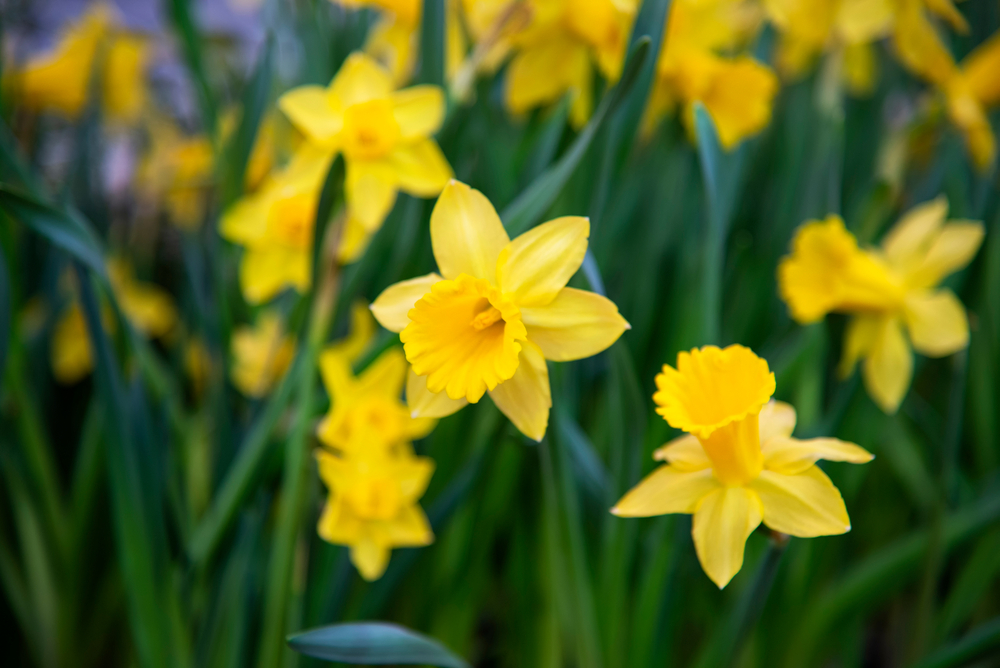
Daffodils are beautiful spring flowers that are known for their bright yellow blooms. They contain a compound called lycorine, which is toxic to squirrels and other pests, making them an effective deterrent. Squirrels generally avoid these plants due to their strong scent and bitter taste. Daffodils are hardy plants that can survive in various climates, making them a great option for many gardeners. Their cheerful flowers also brighten up garden spaces, offering both protection and beauty.
These flowers thrive in well-drained soil and prefer full to partial sunlight. Daffodils are low-maintenance and can be planted in both flower beds and containers. Once planted, they come back year after year, making them a lasting solution for keeping squirrels at bay. Their bulbous roots make them especially hard to dig up, further discouraging squirrels from interfering. For gardeners who want both aesthetic appeal and squirrel protection, daffodils are a great option.
Lavender
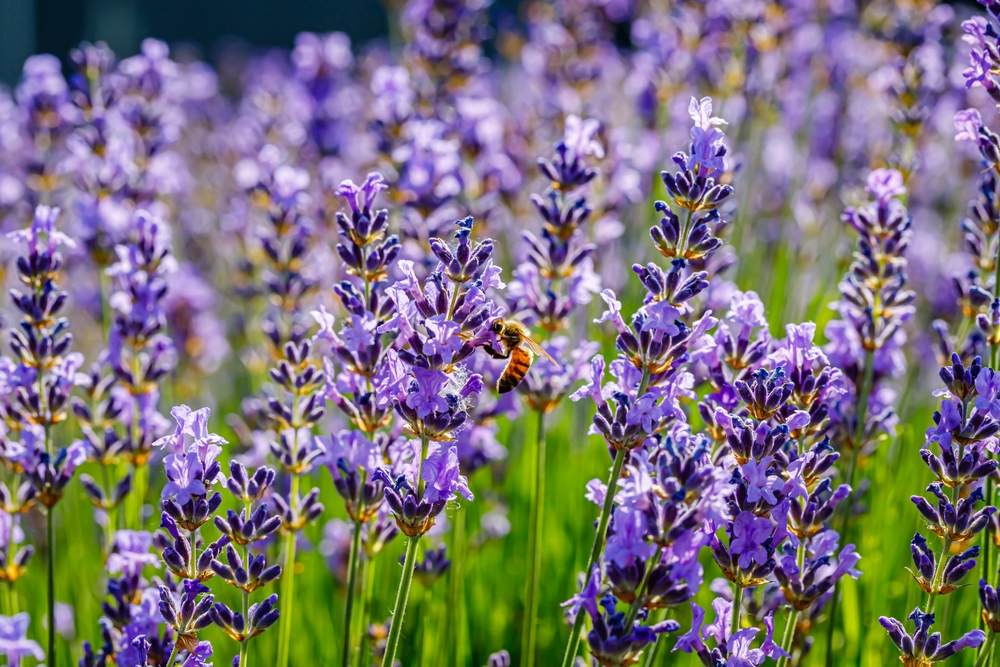
Lavender is a fragrant herb that squirrels tend to avoid due to its strong, calming scent. Known for its beautiful purple flowers and relaxing aroma, lavender acts as a natural repellent to many garden pests, including squirrels. This hardy plant thrives in well-drained soil and plenty of sunlight, making it easy to grow in various climates. Lavender is also drought-resistant and requires minimal watering once established, making it a low-maintenance plant. Additionally, its flowers attract pollinators, such as bees and butterflies, adding another benefit to your garden.
Lavender’s strong fragrance works as a natural deterrent for squirrels, but it is also a beautiful plant to include in any garden. It can be planted along garden borders, pathways, or in containers to create an attractive yet functional barrier. Besides its pest-repelling qualities, lavender has culinary uses, allowing gardeners to harvest it for cooking, teas, and aromatherapy. To keep squirrels at bay and enjoy its many uses, lavender is a must-have for any gardener. It is also resistant to most pests, adding an extra layer of protection for your plants.
Mint
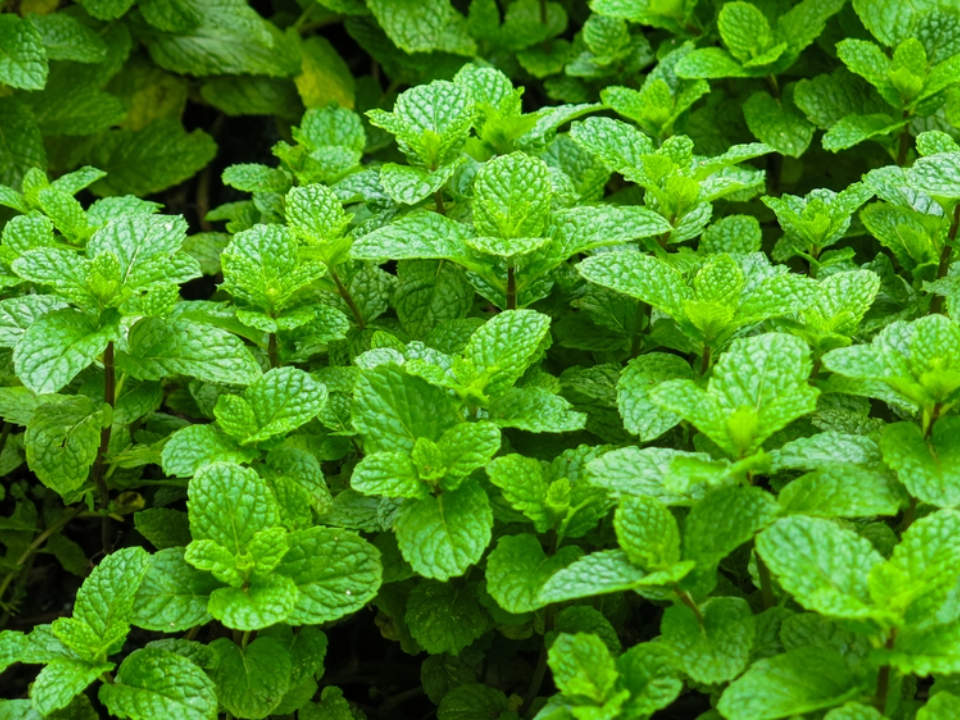
Mint is another aromatic plant that squirrels avoid due to its strong smell. This herb grows quickly and can easily spread throughout your garden, creating a natural deterrent against unwanted visitors. Its strong, minty aroma is not only off-putting to squirrels, but it also repels other pests such as ants, mosquitoes, and flies. Mint thrives in both full sunlight and partial shade, making it a versatile addition to various garden types. It is also a great companion plant for vegetables, as it helps ward off pests that may damage other crops.
Mint can be invasive, so it is best grown in containers or controlled garden beds to prevent it from spreading too quickly. This plant prefers moist, well-drained soil and should be watered regularly, especially in hot weather. Mint is not only useful for keeping squirrels away but can also be harvested for cooking, teas, or making essential oils. With its ability to thrive in a variety of conditions and its natural pest-repelling qualities, mint is a valuable addition to any garden. Its rapid growth and strong scent make it an effective deterrent against squirrels and other animals.
Marigolds
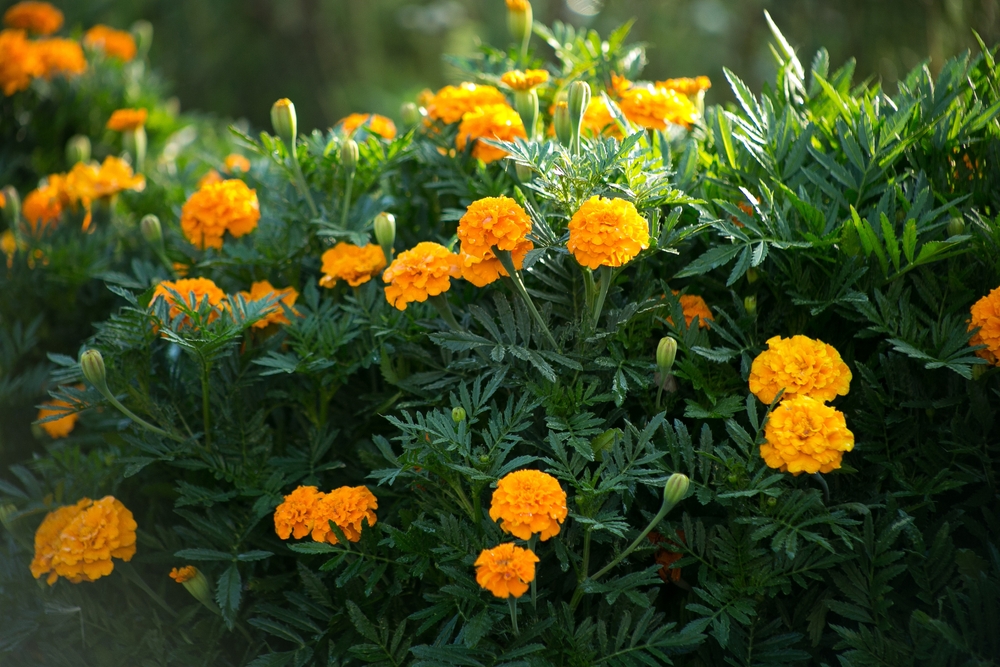
Marigolds are bright, vibrant flowers that are well-known for their ability to repel pests, including squirrels. Their strong scent is unpleasant to many animals, causing them to steer clear of the plants. Marigolds also act as a natural barrier against other pests, such as aphids and nematodes, making them a dual-purpose plant in the garden. These flowers are easy to grow and thrive in full sunlight, making them a great choice for both novice and experienced gardeners. Marigolds also come in various colors, including yellow, orange, and red, which can add a pop of color to your garden.
Marigolds are low-maintenance plants that tolerate dry conditions once established. They are also resistant to most pests and diseases, making them an excellent choice for organic gardens. To keep squirrels away, plant marigolds around the edges of your garden or among other plants that may be vulnerable. They bloom continuously throughout the growing season, providing long-lasting protection for your garden. Marigolds are not only effective in deterring squirrels but also attract pollinators, adding to the overall health of your garden.
Rue
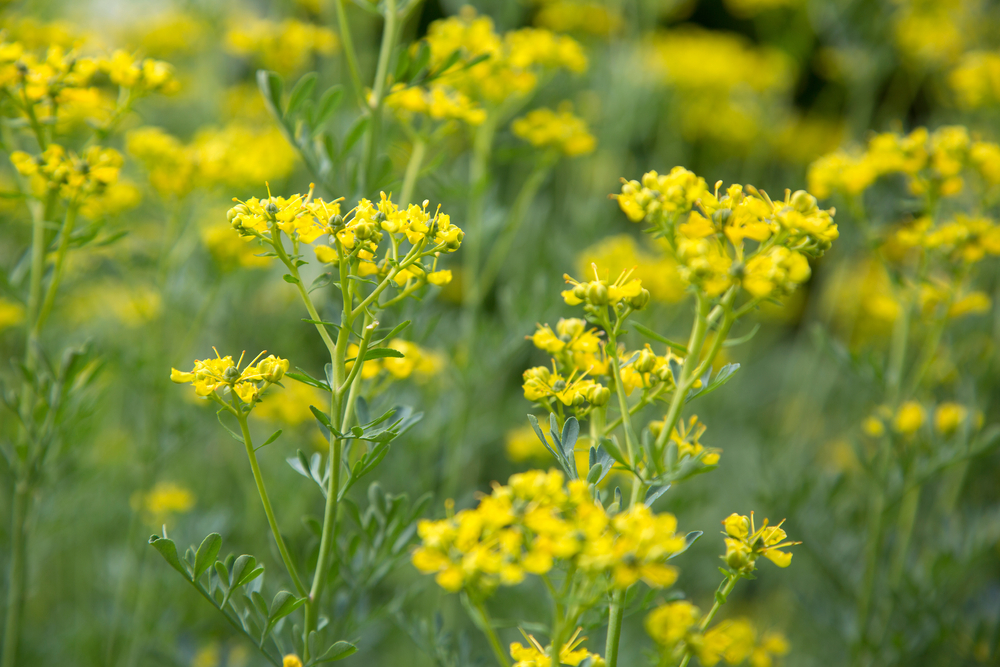
Rue is a hardy, herbaceous plant known for its strong, bitter scent that squirrels find unpleasant. This plant is often used in gardens to keep pests at bay, as it repels both insects and small mammals. Rue grows best in well-drained soil and requires full sunlight to thrive. It is a perennial plant, meaning it will return year after year, providing ongoing protection for your garden. Rue’s blue-green foliage and yellow flowers add a unique touch to garden landscapes.
While rue is effective in keeping squirrels away, it is important to note that it can be toxic to pets, so it should be planted in areas where pets do not have access. The plant’s strong scent works as a natural repellent, deterring squirrels and other animals from digging or feeding in your garden. Rue is also a drought-tolerant plant, requiring little water once established. Its bitter taste and strong aroma make it an ideal option for gardeners who want a simple, effective way to protect their plants from squirrels. Plant rue near other vulnerable plants to create a protective barrier around your garden.
Foxglove
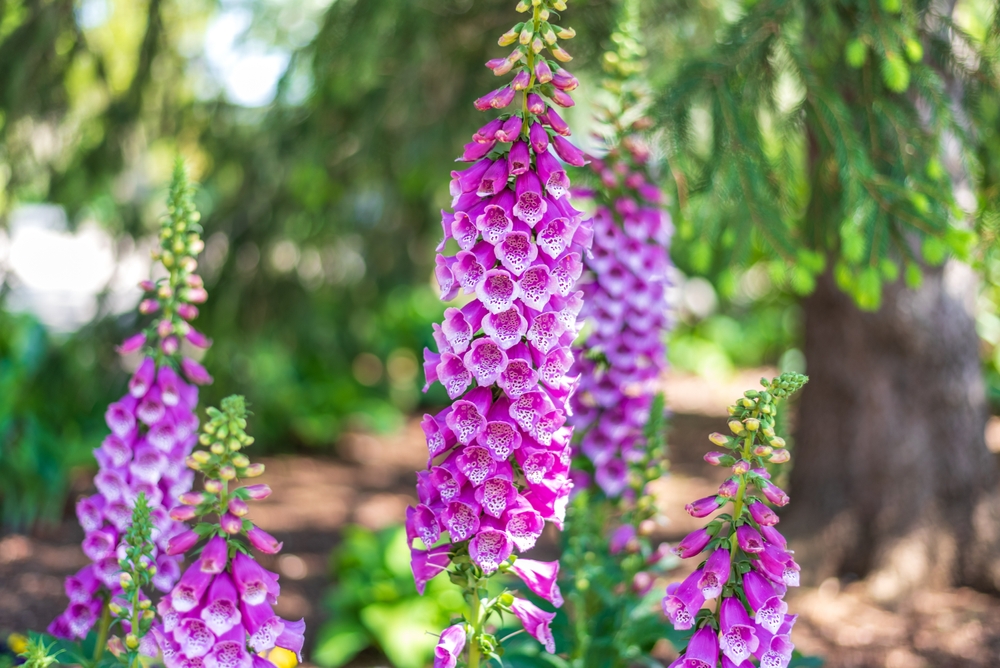
Foxglove is a tall, striking plant known for its bell-shaped flowers that range from purple to pink and white. Although beautiful, this plant contains compounds that are toxic to squirrels, causing them to avoid it. Foxglove thrives in well-drained soil and partial shade, making it a great option for gardens with less sunlight. It is a biennial plant, meaning it may take two years to bloom, but it will continue to return in subsequent years. As a garden plant, foxglove adds vertical interest while helping to deter squirrels and other pests.
Because of its toxicity to animals, it is important to keep foxglove away from pets and children. The plant’s striking flowers and height make it a focal point in any garden. Foxglove is relatively low-maintenance, requiring occasional watering, especially during dry spells. Once established, it can withstand some neglect and still thrive. By planting foxglove, you can enjoy a beautiful garden while keeping squirrels and other pests at bay. Its elegant appearance and natural pest-repelling properties make it a great addition to any garden.
Bleeding Heart
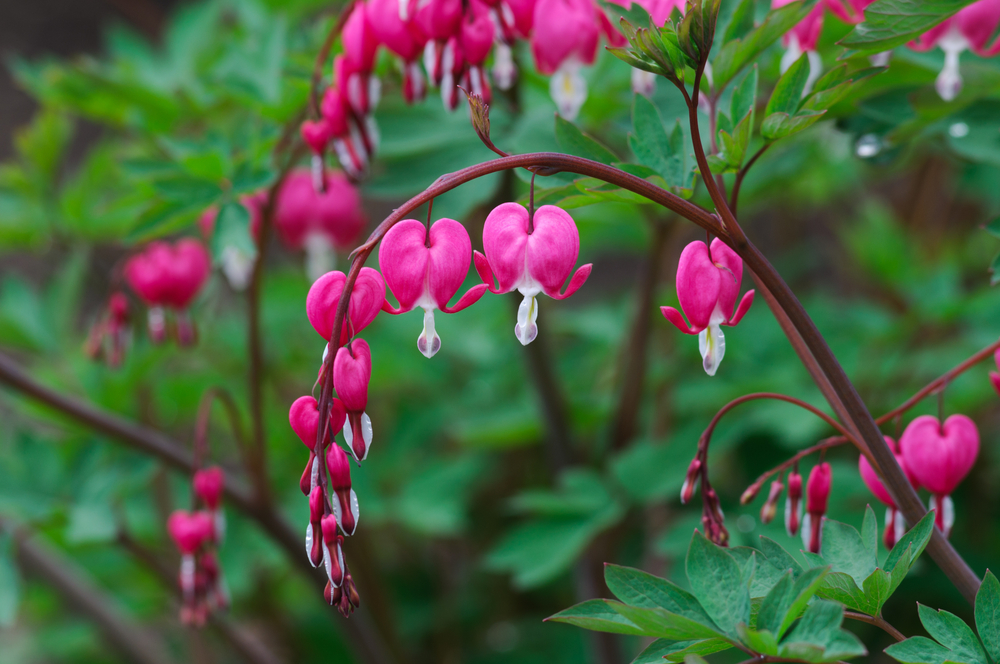
Bleeding Heart is a unique and visually stunning plant that produces heart-shaped flowers in shades of pink and white. This perennial plant thrives in well-drained soil and partial shade, making it a great choice for shaded areas in your garden. Squirrels avoid Bleeding Heart due to its toxic properties, which deter them from nibbling on the plant. Bleeding Heart’s delicate appearance adds a touch of elegance to any garden, making it both a protective and decorative choice. It blooms in the spring and summer, providing long-lasting beauty.
Bleeding Heart plants are low-maintenance and require minimal care once established. They grow best in cooler climates and are ideal for adding a touch of color to shaded corners of your garden. The plant’s toxic properties help protect it from squirrels and other animals. By planting Bleeding Heart, you can keep squirrels away from more vulnerable plants while enjoying its beautiful, unique flowers. It thrives with regular watering and occasional fertilization, making it easy to care for in most garden conditions.
Sage

Sage is a fragrant herb that squirrels avoid due to its strong aroma. This herb grows quickly and can easily spread throughout your garden, creating a natural deterrent against unwanted visitors. Its strong, minty aroma is not only off-putting to squirrels, but it also repels other pests such as ants, mosquitoes, and flies. Sage thrives in both full sunlight and partial shade, making it a versatile addition to various garden types. It is also a great companion plant for vegetables, as it helps ward off pests that may damage other crops.
Sage can be invasive, so it is best grown in containers or controlled garden beds to prevent it from spreading too quickly. This plant prefers moist, well-drained soil and should be watered regularly, especially in hot weather. Sage is not only useful for keeping squirrels away but can also be harvested for cooking, teas, or making essential oils. With its ability to thrive in a variety of conditions and its natural pest-repelling qualities, sage is a valuable addition to any garden. Its rapid growth and strong scent make it an effective deterrent against squirrels and other animals.
Chrysanthemums
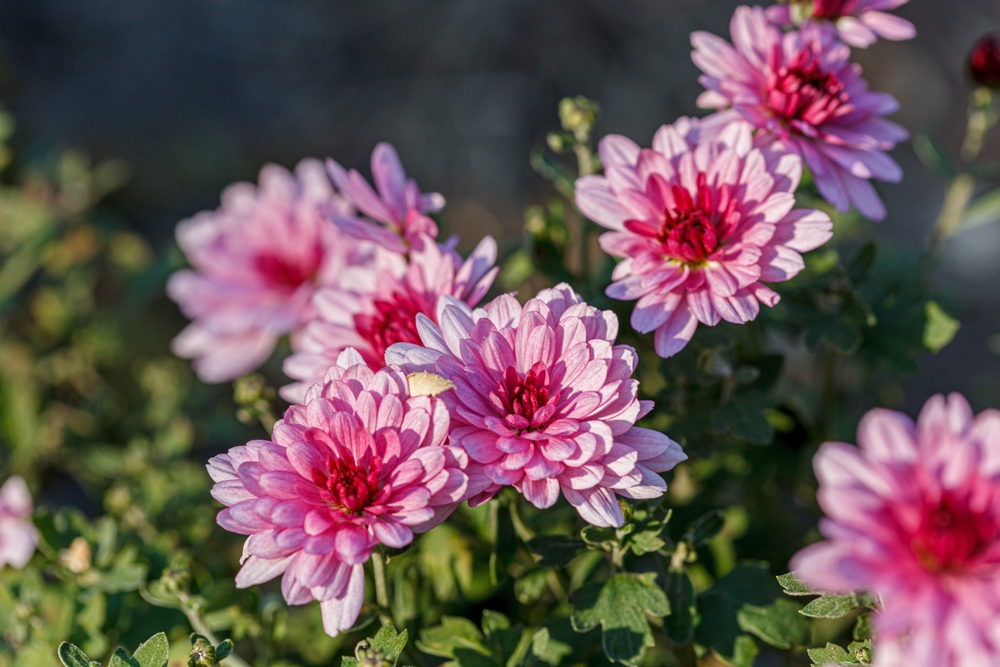
Chrysanthemums are bright, colorful flowers that are effective at deterring squirrels and other pests. The strong scent of chrysanthemums is unpleasant to squirrels, causing them to avoid these plants. They are also known to repel other pests, such as aphids and mites, making them a great addition to your garden. Chrysanthemums thrive in full sunlight and well-drained soil, making them ideal for a variety of garden conditions. They bloom in late summer and fall, providing vibrant color and protection for your garden.
Chrysanthemums are easy to care for, requiring only regular watering and occasional pruning to maintain their shape. They come in a wide range of colors, from bright yellows to deep reds, allowing you to create a stunning display. These flowers are not only effective at keeping squirrels away but also add seasonal color to your garden. With their strong scent and pest-repelling qualities, chrysanthemums are a great choice for gardeners looking to protect their plants. They can be planted around the edges of your garden or mixed with other plants for added protection.
Geraniums
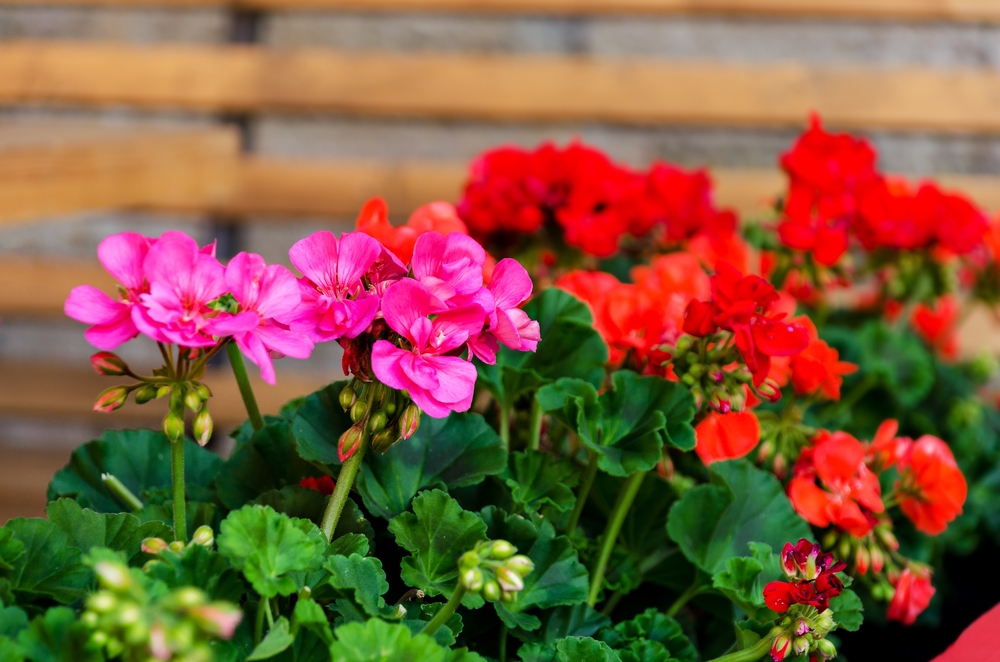
Geraniums are vibrant, easy-to-grow flowers that can help keep squirrels away due to their strong, fragrant scent. These flowers come in a variety of colors, including red, pink, and white, making them perfect for adding color to any garden. Geraniums can be planted in garden beds or containers and thrive in full sunlight. Their scent is unpleasant to squirrels, which makes them a natural deterrent for these pesky creatures. Geraniums also repel other insects, such as aphids and mosquitoes, which helps protect your plants from further damage.
In addition to their pest-repelling qualities, geraniums are low-maintenance and easy to care for. They require regular watering and occasional pruning to keep them healthy and blooming. Geraniums can withstand dry conditions, making them perfect for gardeners with limited watering time. These flowers are a great addition to both ornamental and vegetable gardens, helping to protect plants while enhancing the beauty of your space. With their vibrant colors and natural pest-repelling qualities, geraniums are a must-have for any garden.
Rosemary

Rosemary is a fragrant herb that squirrels tend to avoid due to its strong scent and sharp taste. This herb grows well in full sunlight and well-drained soil, making it perfect for various garden types. Rosemary’s strong, pine-like aroma is effective at repelling squirrels, and it also helps deter other pests, including insects. In addition to being a natural pest repellent, rosemary is a versatile herb that can be used in cooking, teas, and even essential oils. Its easy care and multiple uses make it a valuable addition to your garden.
Rosemary is drought-tolerant and requires little maintenance once established. It thrives in areas with plenty of sunlight, but it can also adapt to partial shade. Plant rosemary around the edges of your garden or among other plants to create a natural barrier against squirrels. The herb’s woody structure and strong scent help protect your plants from being disturbed. Rosemary’s culinary uses and pest-repelling properties make it a great, multifunctional addition to any garden.
Lemon Balm
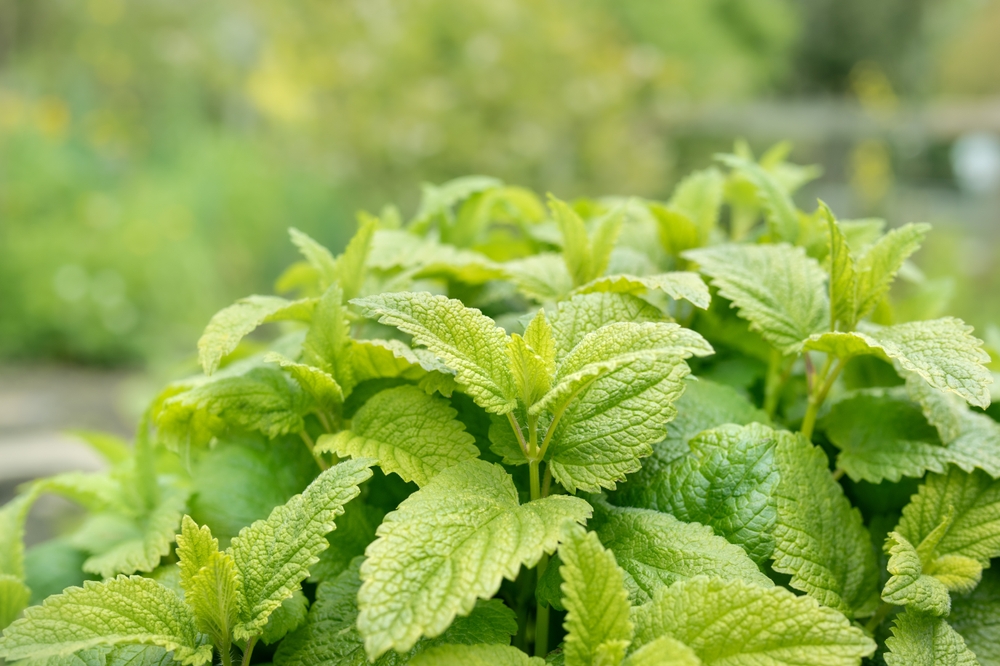
Lemon Balm is a fragrant herb with a strong lemon scent that squirrels find off-putting. This plant is easy to grow and thrives in well-drained soil with plenty of sunlight. It is a member of the mint family, and its strong aroma helps deter squirrels and other pests. Lemon Balm grows quickly, producing lush green leaves and small white flowers that attract beneficial insects like bees and butterflies. Its refreshing scent adds an extra layer of protection for your garden, keeping unwanted visitors away.
This herb is low-maintenance and grows well in most soil types, making it perfect for various garden settings. Lemon Balm can be planted in containers, raised beds, or directly in the ground to form a natural barrier around your garden. Its fresh, citrus-like scent is most potent when the leaves are bruised or crushed, releasing a stronger aroma. Lemon Balm is also a useful herb in the kitchen, with leaves that can be added to teas, salads, and desserts. With its ability to repel squirrels and other pests, Lemon Balm is a great, all-around plant for any garden.
Thyme

Thyme is a fragrant herb that squirrels avoid due to its strong, spicy aroma. This herb thrives in full sunlight and well-drained soil, making it a great choice for any garden. Thyme’s scent helps keep squirrels and other animals at bay, providing a natural deterrent without the need for chemicals or traps. It also works as a companion plant, helping to protect other crops from pests like aphids and cabbage worms. Thyme grows easily and can be harvested for culinary use, making it both practical and effective.
Thyme is low-maintenance and can withstand dry conditions once established. It can be planted in garden beds, containers, or as a ground cover to create a natural barrier. Thyme’s compact size makes it ideal for smaller gardens or spaces where you need a protective layer. The herb’s ability to deter pests while offering a variety of uses in cooking and medicinal remedies makes it a must-have for any gardener. With its ability to keep squirrels away, thyme is a simple yet valuable addition to your garden.
Castor Bean Plant
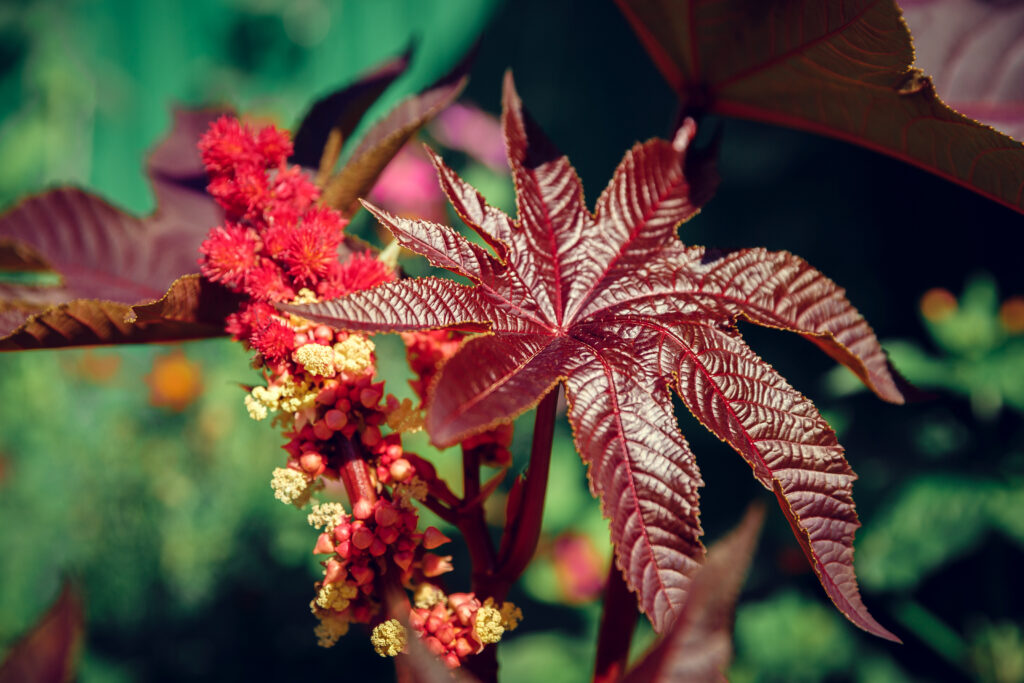
The Castor Bean plant is known for its large, striking foliage and its ability to keep squirrels and other pests away. This plant contains ricin, a toxic substance that makes it harmful to animals, including squirrels. As a result, squirrels tend to avoid Castor Bean plants altogether. The plant thrives in full sunlight and well-drained soil, making it a great addition to garden beds or containers. Its bold, tropical appearance adds an exotic touch to your garden while acting as a natural deterrent.
Castor Bean plants grow quickly and can reach impressive heights, adding visual interest to your garden. They are low-maintenance and require minimal care once established, making them an easy option for gardeners looking for effective pest control. The toxicity of the plant is a key factor in its ability to keep squirrels at bay, but it is important to keep it away from pets and young children due to its poisonous nature. The striking appearance and pest-repelling qualities make the Castor Bean plant a useful and beautiful addition to any garden. Just be sure to plant it in an area where it will not be accessible to pets or small children.
Protecting your garden from squirrels does not have to involve harsh methods. These plants provide an eco-friendly way to maintain your garden’s health while adding visual interest. Embrace these natural solutions for a more enjoyable and squirrel-free gardening experience.
This article originally appeared on Avocadu.
